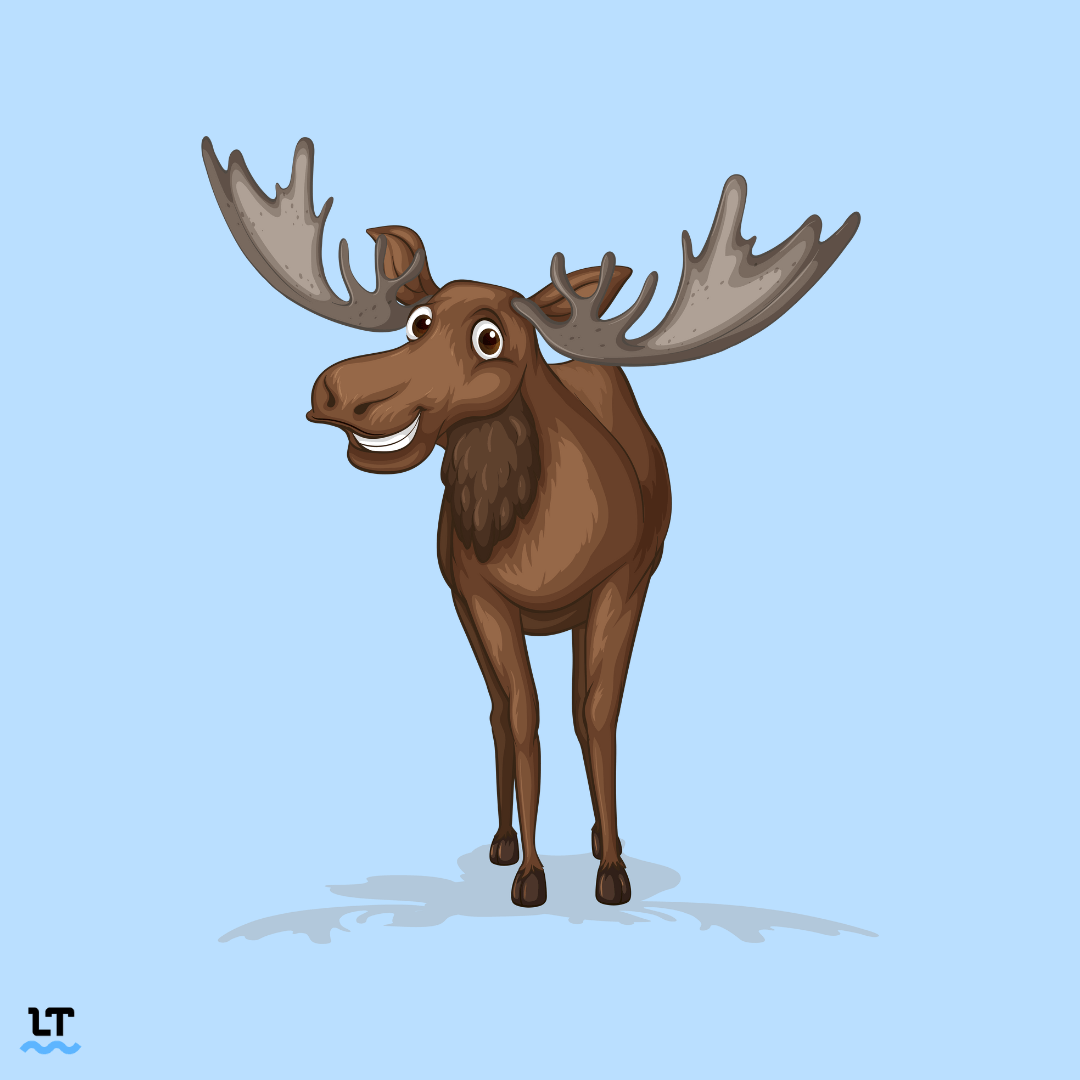Plural of Moose: Quick Summary
The plural form of moose is moose.
- We saw a herd of moose during our road trip to Canada.
Moose on the Loose
If the plural of goose is geese, then the plural of moose must be meese, right?
Wrong!
Below, we’ll tell you what the right plural form of moose is, provide example sentences to show you how to use the word, and explain why moose doesn’t follow the typical pluralization patterns.

What Is the Correct Plural Form of “Moose”?
Moose is the plural of moose.
You may occasionally come across the word mooses, but that’s incorrect. People also sometimes use meese as the plural form because they’re under the assumption that the word moose follows the same rule as goose.
In Colorado, it’s not unusual to come across moose while driving.
In Colorado, it’s not unusual to come across mooses while driving.
In Colorado, it’s not unusual to come across meese while driving.
When it comes to the correct plural form of moose, remember that it’s not mooses nor meese—just moose.
Example Sentences That Contain the Word “Moose”
Here are a few more sentences that contain the word moose.
We saw several moose grazing in the meadow.
I’ve never seen a moose with such big antlers!
Only male moose have antlers.
We came across a gigantic herd of moose.
Yesterday, when I was taking out the garbage, I stumbled upon a moose with her calf and ran back inside my house for safety.
Why Isn’t “Meese” the Correct Plural?
We understand why some people may ask this question. After all, if geese is the proper plural form, why isn’t meese?
Well, despite their similar appearance, goose and moose aren’t related at all. Goose is much older and can be traced back to the Old English term “gōs,” which is similar to the term used in other Germanic languages. In Old English, certain words were made plural by changing their vowel sound, which is how geese came to be the plural form of goose.
In contrast, moose is a loanword—a word that has been borrowed from another language and kept its original form and meaning with little or no modification. As English evolved, words that followed the same pluralization pattern as goose were either replaced by the standard plural ending “–s,” or maintained the plural forms from their original languages. The word moose, which was derived from Native American languages (Eastern Algonquian and Narragansett), fell into the latter category and therefore retained the plural form moose.

Understanding Plural Nouns
Moose is just one of many plural nouns people question. Fish is another, and so is mice. Instead of struggling with plural nouns, you can simply use LanguageTool as your writing assistant. This multilingual spelling, grammar, and punctuation checker fixes incorrect plural forms, but it can also elevate your writing by suggesting more suitable wording and helping you rewrite your sentences.
The best part about it? It’s free to use! Try it out.

